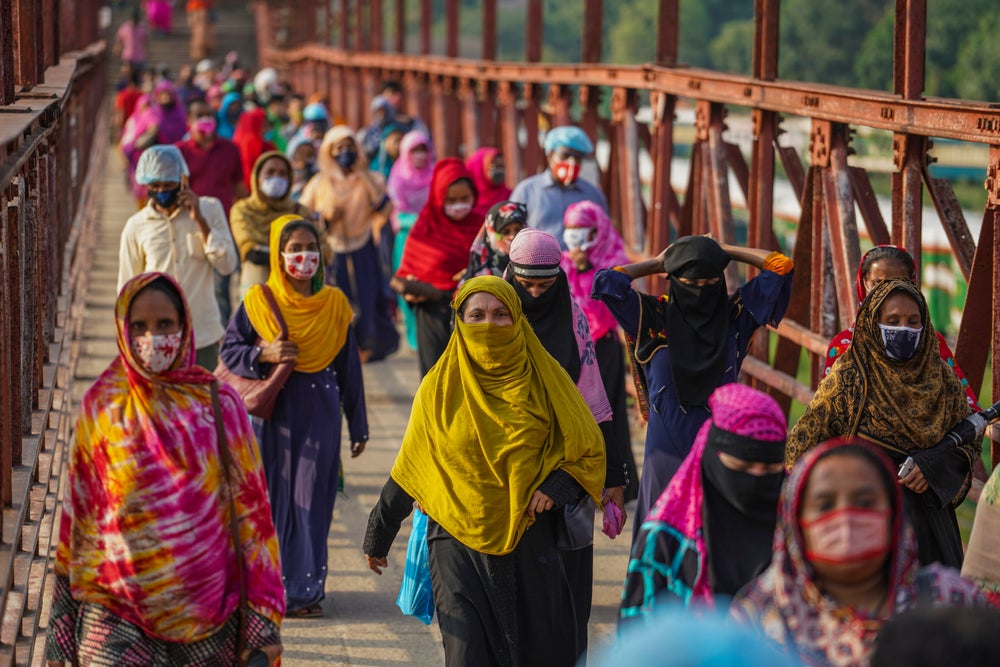
The group of international associations, representing over 2,500 brands, retailers, and suppliers and working with more than 2,900 factories in Bangladesh, have expressed concerns about the recently announced minimum wage for the ready-made garment (RMG) sector in the country.
In a letter addressed to Bangladesh prime minister Sheikh Hasina, the group has called for a reassessment of the proposed minimum wage and has encouraged a collaborative effort between employers and worker representatives to establish a legal minimum wage that adheres to international labour and industry standards, prioritising human rights.
The five organisations collectively advocate for periodic adjustments in minimum wage levels to prevent the erosion of workers’ purchasing power and address wage inequality.
The gap between the legal minimum wage and the average living wage in Bangladesh is reported to be the highest among major garment-producing countries.
This discrepancy presents challenges to the aspirations of the RMG sector in Bangladesh to meet international standards and poses a threat to the country’s reputation as a responsible sourcing hub.
The proposed minimum wage of BDT 12,500 ($112.9) has raised concerns as it is deemed insufficient to cover basic needs and provide a decent standard of living for garment workers.
According to the letter, this figure also contradicts the government’s proclaimed commitment to upholding decent work standards.
In response to recent protests that resulted in at least four workers reportedly losing their lives, the group called upon the government to release arrested protesters and drop all charges.
They emphasised the importance of respecting the freedom of association, the right to strike, and the right to demonstrate.
As part of their commitment to supporting an increased minimum wage, the signatories encourage their member companies to engage in responsible purchasing practices.
This involves integrating fair wages into human rights due diligence and ensuring that suppliers can afford to pay decent wages. The organisations further recommend a fair and sustainable sharing of the cost burden resulting from an increase in the legal minimum wage among suppliers.
The government of Bangladesh could not be reached for comment at time of press.



